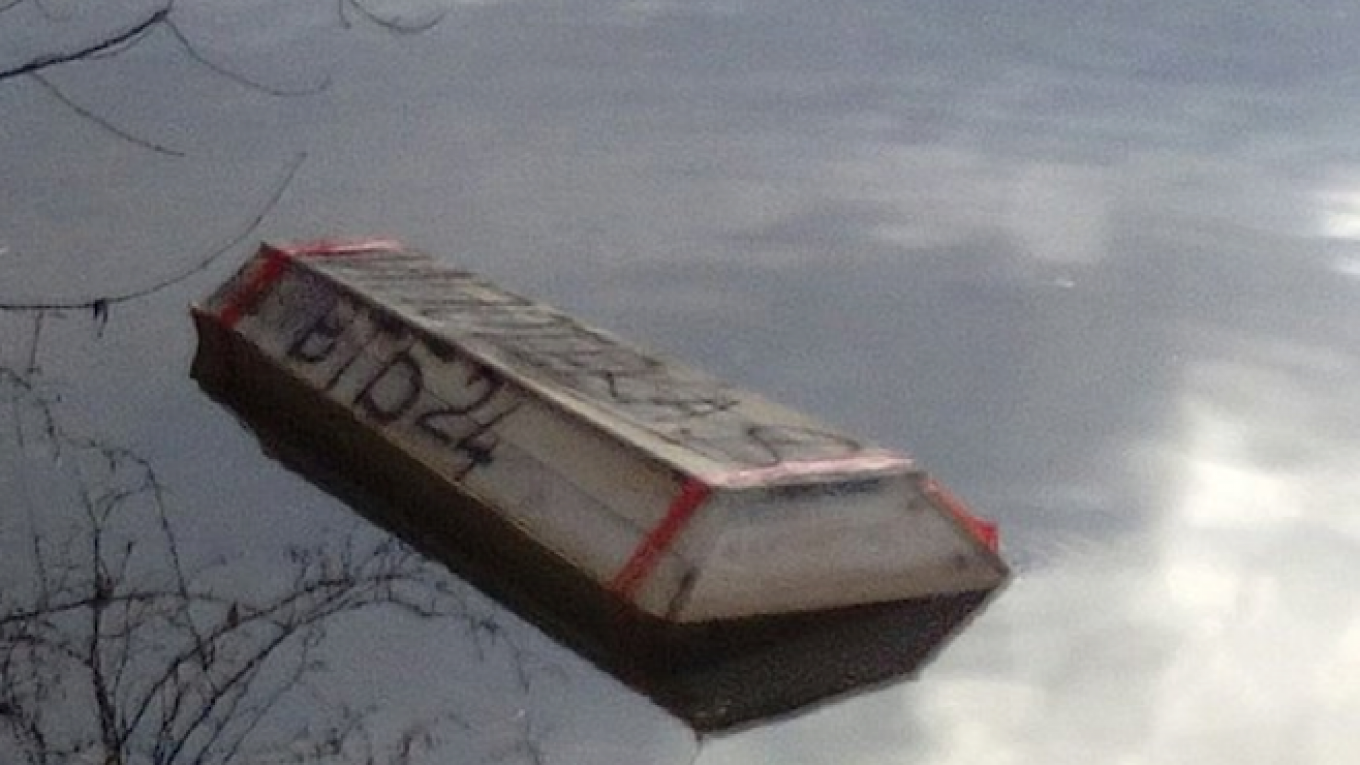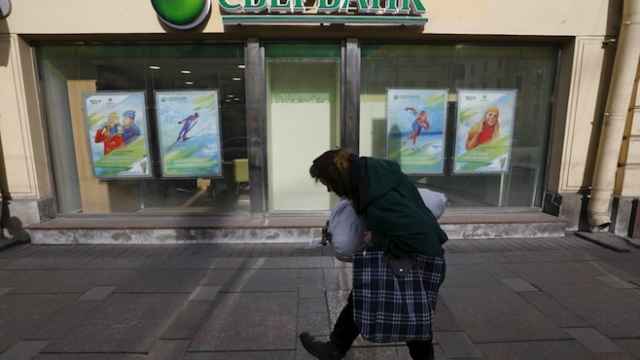A group of activists campaigning on behalf of foreign currency mortgage holders floated 20 coffins, daubed with the names of banks, down the Moscow River on Friday, the RBC news website reported.
Photographs of the stunt showed the coffins nosing their way along the waterway from a launch site on the Karamyshevskaya Naberezhnaya in western Moscow toward the center of the city.
“With their protest, foreign currency mortgage holders have decided to send banks — which are not willing to compromise — floating freely like the ruble. Symbolically this took place on Friday 13th,” said Galina Grigoreva, a representative of the All-Russian Movement for Foreign Currency Mortgage Holders, according to RBC.
Еще одна клевая акция протеста: Ипотечные заемщики пустили по Москве-реке гробы с названиями банков, пишет Росбалт pic.twitter.com/WGQMZppMNN
— Лентач (@oldLentach) November 13, 2015
A dramatic decline in the value of the ruble in the last six months of 2014 because of plunging oil prices and Western sanctions over the Ukraine crisis hit Russians who had taken out mortgages denominated in euros or dollars hard as their monthly payments skyrocketed.
Russia's Central Bank abandoned targeted interventions to prop up the value of the ruble in November 2014, and allowed to ruble to float freely. The Russian currency lost almost 50 percent of its value against the U.S. dollar last year.
The coffins were set afloat at about 5:30 a.m., according to activist Oxana Semenova, cited by RBC. The names of all the banks were not immediately clear, but photographs showed they included the VTB24 retail branch of state-owned VTB, Absolut Bank and Bank of Moscow.
Many banks attracted clients to mortgages denominated in dollars or euros with more attractive rates and activists claim they were misled. Foreign currency mortgage holders have held several high-profile protests in Moscow this year, including outside the Central Bank and on Red Square.
President Vladimir Putin told members of Russia's Human Rights Council in October that foreign currency mortgage holders made a decision to risk currency fluctuations when they took out their loans, but said that the state should step in to help avoid “extreme situations.”
A Message from The Moscow Times:
Dear readers,
We are facing unprecedented challenges. Russia's Prosecutor General's Office has designated The Moscow Times as an "undesirable" organization, criminalizing our work and putting our staff at risk of prosecution. This follows our earlier unjust labeling as a "foreign agent."
These actions are direct attempts to silence independent journalism in Russia. The authorities claim our work "discredits the decisions of the Russian leadership." We see things differently: we strive to provide accurate, unbiased reporting on Russia.
We, the journalists of The Moscow Times, refuse to be silenced. But to continue our work, we need your help.
Your support, no matter how small, makes a world of difference. If you can, please support us monthly starting from just $2. It's quick to set up, and every contribution makes a significant impact.
By supporting The Moscow Times, you're defending open, independent journalism in the face of repression. Thank you for standing with us.
Remind me later.






